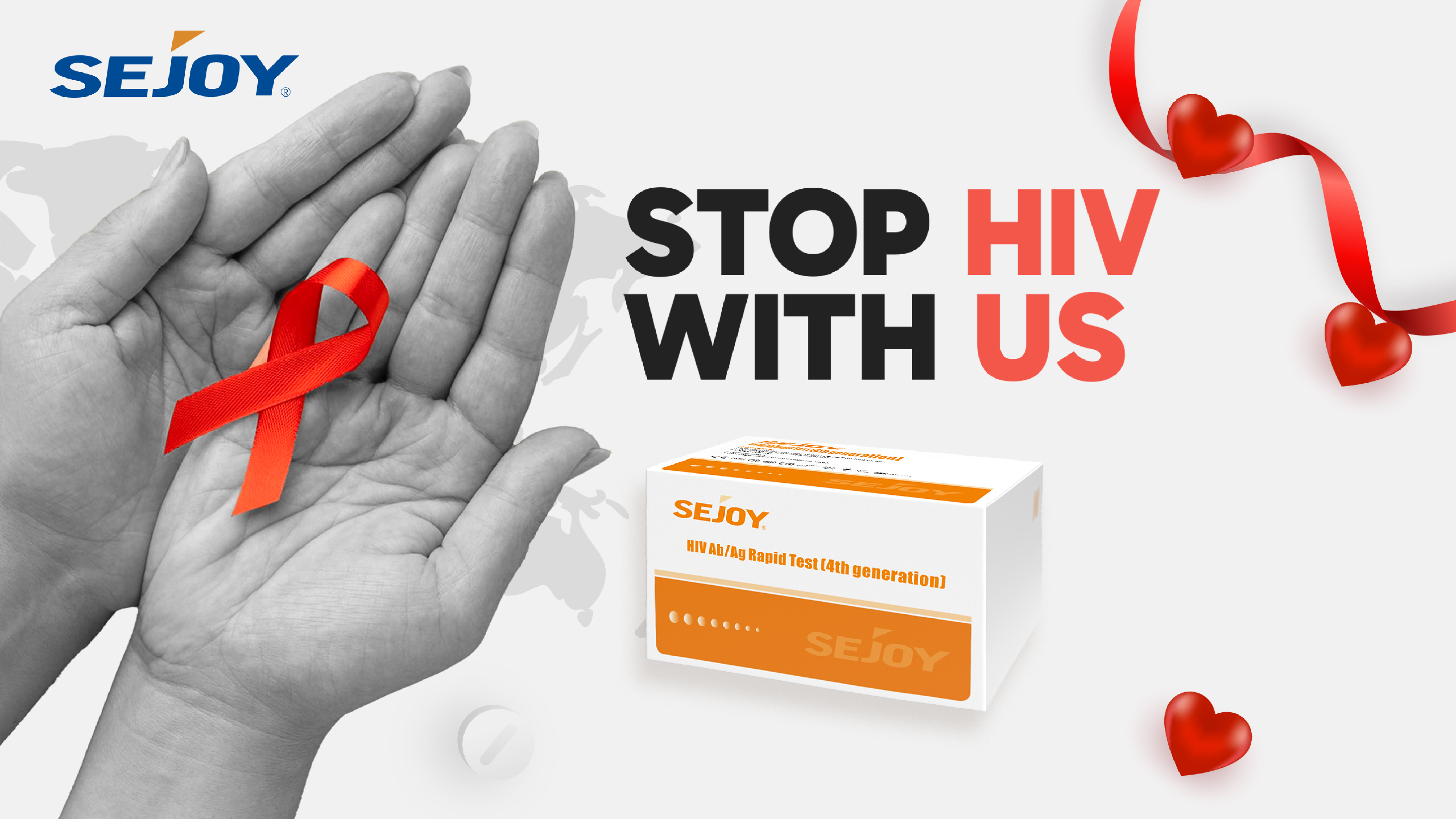AIDS, or Acquired Immune Deficiency Syndrome (AIDS), is a syndrome caused by human immunodeficiency virus (HIV) infection, followed by a series of opportunistic infections and tumors, which can lead to death in severe cases.
Source of infection: HIV infected persons and AIDS patients are the source of infection of the disease.
Transmission route: HIV mainly exists in the blood, semen, vaginal secretions, and milk of infected individuals and patients.
Sexual activity: unprotected sexual activity with an infected partner, including same-sex, opposite sex, and bisexual contact.
Intravenous injection drug use: Sharing infected and unsterilized injection tools with others is a very important route of HIV transmission.
Maternal to child transmission: During pregnancy, childbirth, and breastfeeding, mothers infected with HIV may transmit it to fetuses and infants.
Blood and blood products (including artificial insemination, skin transplantation, and organ transplantation). Handshaking, hugging, polite kissing, eating and drinking together, sharing toilets and bathrooms, sharing offices, public transportation, entertainment facilities, and other daily contact will not transmit HIV.
Susceptible population: The population is generally susceptible. High risk groups include male homosexuals, intravenous drug users, frequent sexual contact with HIV carriers, frequent blood transfusions and blood products, and babies born to HIV infected mothers.
Prevention of AIDS
Management of sources of infection: High risk populations should be regularly tested for HIV antibodies. Medical and health departments should promptly report infected individuals and promote HIV related knowledge to prevent transmission to others. The blood, body fluids, and secretions of infected individuals should be disinfected.
Cut off transmission routes: avoid unsafe sexual behavior, prohibit sexual promiscuity, and ban prostitution. Strictly screen blood donors, inspect blood products strictly, and promote the use of disposable syringes. Injecting drugs is strictly prohibited, especially when using needles to inject drugs. Do not share dental equipment or razors. Not going to informal hospitals for examination and treatment.
Protecting susceptible populations: Advocating pre marital and pre pregnancy physical examinations. Pregnant women who are HIV positive should undergo maternal and infant blockade. Including obstetric intervention, antiviral drugs, and artificial feeding (or breastfeeding chosen with full informed consent based on actual family conditions), to prevent mixed feeding.
Medical personnel strictly follow medical operating procedures to avoid occupational exposure.
AIDS single positive family protection
AIDS virus mainly exists in semen, blood, wound exudate, milk, vaginal secretions and other body fluids of infected persons. Generally, life contact will not cause transmission, but when skin and mucous membrane are damaged, infection can be obtained by contacting the body fluids of infected persons.
Pregnant women receive routine prenatal examinations, including AIDS testing, in the early pregnancy. If AIDS is found, antiviral treatment measures should be taken as soon as possible under the guidance of professional institutions to prevent mother to child transmission. Spouses must undergo testing simultaneously to avoid cross infection.
The feeding of infants and young children should be selected according to their living environment, and artificial feeding is advocated. HIV can exist in the breast milk of patients. At the same time, chapped or damaged nipples during breastfeeding will increase the risk of infection of the baby. Therefore, artificial feeding is recommended for babies born to mothers infected with AIDS, or breast feeding selected with full informed consent according to the actual family situation, and mixed feeding is not allowed.
Avoid sexual transmission. HIV exists in vaginal secretions and semen of AIDS patients, so the use of condoms when couples have sex is a necessary measure to protect negative spouses from infection.
Standardize antiviral treatment. The positive party in a single HIV positive family insists on antiviral treatment to reduce the number of viruses in their body, which can reduce sexual transmission between HIV partners.
Regular testing. Both men and women should regularly carry out AIDS testing as required, actively learn the basic knowledge of AIDS, do a good job in family protection, and avoid cross infection.
Do not share cleaning supplies. There is AIDS virus in the blood and body fluids of AIDS patients. If their families touch the blood of patients, they may get sick. Cleaning products such as nail clippers, toothbrushes, and razors, as well as other needling instruments, are prone to scratching the skin during use and pose a high risk of infection. They cannot be shared.
Protect the right to information of sexual partners. Family members should care for and take care of the lives of infected individuals, remind and supervise them to take medication on time and undergo regular testing.
Post time: Jan-25-2024



